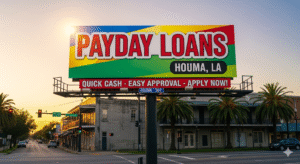
Can You Pay Taxes with a Credit Card
Paying taxes is a responsibility every citizen must fulfill, but did you know you can actually pay your taxes with a credit card? It might sound surprising, but it’s a legitimate option available to taxpayers. This article will dive into the details of how you can pay taxes with a credit card, the pros and cons of doing so, and some important considerations to keep in mind. Understanding the nuances of this payment method can help you make an informed decision that aligns with your financial goals and needs.
Understanding Your Options for Paying Taxes
When tax season rolls around, taxpayers often wonder about their options for payment. The Internal Revenue Service (IRS) provides multiple methods for paying taxes, including direct debit from your bank account, checks, money orders, and yes, even credit cards. Each payment method comes with its own set of advantages and potential drawbacks, which are important to consider based on your financial situation.
Traditional Payment Methods
Traditional methods like checks and money orders have been used for decades. These options provide a tangible way to fulfill your tax obligations, but they require careful planning to ensure timely delivery. Mailing a check or money order involves waiting for postal delivery and processing by the IRS, which might not suit everyone’s schedule or preference.
Electronic Payment Options
Electronic payments, such as direct debits from your bank account, offer a faster and more secure way to pay taxes. This method eliminates the risk of lost checks and provides immediate confirmation of payment. However, direct debit requires you to have sufficient funds in your bank account at the time of payment, which might not be ideal for everyone.
Credit Card Payments
Paying taxes with a credit card is a relatively new addition to the available options. This method can be appealing for those who prefer the convenience of online transactions and the potential to earn credit card rewards. Understanding the process and associated fees is crucial to making the most of this option.
How to Pay Taxes with a Credit Card

The process of paying taxes with a credit card is relatively straightforward. The IRS does not directly accept credit card payments, but it partners with several third-party payment processors that handle these transactions. Here’s how you can do it:
Choosing a Payment Processor
Visit the IRS website to find a list of approved payment processors. Some popular ones include PayUSAtax, Pay1040, and Official Payments. It’s important to compare the fees and services of each processor to determine which one best suits your needs. The processors vary in terms of convenience fees and user experience, so take the time to review them thoroughly.
Entering Your Payment Details
Once you choose a processor, you’ll need to enter your payment details, including the amount you owe and your credit card information. Ensure that all information is accurate to avoid any issues with your payment. Double-checking your details can save time and prevent potential complications with your tax payment.
Submitting Your Payment
After entering your details, submit your payment. You’ll receive a confirmation of your transaction, which you should keep for your records. This confirmation serves as proof of payment and can be useful if any discrepancies arise with the IRS. It’s also a good idea to track your credit card statement to ensure the payment is processed correctly.
Fees and Costs
Using a credit card to pay taxes isn’t free. Payment processors charge a convenience fee for handling the transaction. This fee is usually a percentage of your total tax payment, typically ranging from 1.87% to 1.99%. Be sure to factor in these costs when deciding to use a credit card for tax payments.
Understanding Convenience Fees
Convenience fees are charged by payment processors to cover the costs of processing credit card transactions. These fees can add up, especially for large tax payments. It’s important to weigh these fees against the benefits you might receive from using a credit card, such as rewards or deferred payments.
Comparing Costs Across Processors
Not all payment processors charge the same fees. Some may offer lower rates or additional services that could influence your decision. Comparing the costs and benefits of each processor can help you choose the most cost-effective option for your tax payment.
Calculating Total Costs
Before deciding to pay your taxes with a credit card, calculate the total cost of the transaction. Include the convenience fee and any potential interest charges if you don’t pay off your credit card balance in full. This calculation will help you determine whether the benefits of using a credit card outweigh the costs.
Pros of Paying Taxes with a Credit Card

Paying taxes with a credit card can offer several advantages:
Convenience
Using a credit card is convenient and can be done from the comfort of your home. It’s a fast and straightforward way to pay taxes online without the need for checks or physical paperwork. For those with busy schedules or who prefer digital transactions, credit card payments can save time and effort.
Credit Card Rewards
If your credit card offers rewards like cash back or travel points, paying taxes with your card could earn you some benefits. Depending on the amount of taxes you owe, these rewards might offset the processing fees. It’s a good strategy to maximize your card’s reward program while fulfilling your tax obligations.
Deferred Payments
Paying with a credit card can give you more time to pay off your tax bill. If you’re facing a large tax payment and need some breathing room, using a credit card can help manage cash flow in the short term. This flexibility can be particularly helpful if you’re waiting for additional funds or dealing with temporary financial constraints.
Cons of Paying Taxes with a Credit Card
While there are benefits, there are also drawbacks to consider:
Interest Charges
If you don’t pay off your credit card balance in full by the due date, you’ll incur interest charges. These can add up quickly, especially if the interest rate on your card is high. It’s crucial to have a plan in place to pay off the balance promptly to avoid costly interest fees.
Processing Fees
As mentioned earlier, the fees for using a credit card can be significant. It’s important to weigh these costs against any potential rewards or benefits you might gain. In some cases, the fees might outweigh the advantages, making other payment methods more appealing.
Impact on Credit Score
Large transactions can impact your credit utilization ratio, which is a key factor in your credit score. If using your credit card for taxes increases your utilization significantly, it could temporarily lower your credit score. It’s essential to monitor your credit utilization and plan accordingly to minimize any negative effects on your credit score.
Important Considerations

Before deciding to pay your taxes with a credit card, consider the following factors:
Credit Limit
Ensure your credit card has a high enough limit to cover your tax payment. Exceeding your credit limit can result in additional fees and could impact your credit score. Checking your credit limit in advance can help you avoid these issues and ensure a smooth transaction.
Budgeting
Plan your budget to ensure you can pay off your credit card balance in a timely manner. This will help you avoid costly interest charges and keep your financial health intact. Effective budgeting involves setting aside funds specifically for tax payments and considering any potential expenses that might arise.
Alternative Payment Options
Consider other payment methods like setting up an installment agreement with the IRS if you cannot pay your taxes in full by the due date. This can be a more cost-effective solution than incurring high credit card fees and interest charges. Exploring all available options can help you make the best financial decision for your situation.
Conclusion
Paying taxes with a credit card is a viable option, but it’s important to weigh the pros and cons carefully. While it offers convenience and the potential for rewards, the fees and possible interest charges can be a downside. Always consider your financial situation and explore all available payment options to make the most informed decision.
By understanding the process and evaluating your own financial needs, you can decide whether paying taxes with a credit card is the right choice for you. Remember, responsible financial planning is key to managing your tax obligations effectively. Being proactive and well-informed can help you navigate tax season with confidence and ease.




